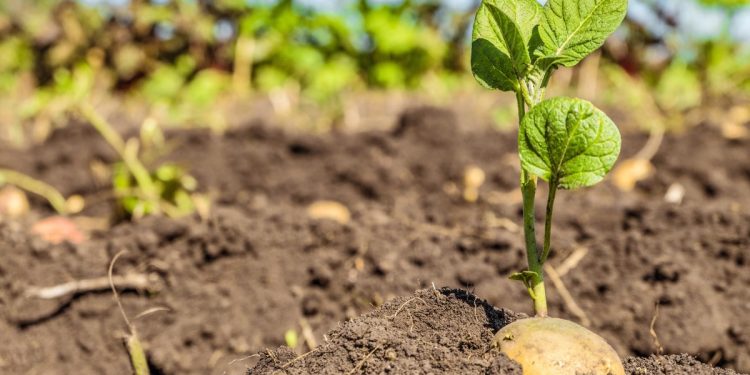#SeedPotatoes #AgriculturalChallenges #EuropeanAgriculture #ClimateImpact #FoodSecurity #GlobalFarming #AgronomicInnovation #SupplyChainResilience
The 2023 growing season brought unprecedented challenges for European seed potato growers. Unfavorable weather conditions and reduced planting acreage have led to delays in planting, decreased yields, and a significant shortage of seed potatoes. This article explores the impact of these challenges on the seed potato industry and offers recommendations for addressing the supply shortages.
Challenging 2023 Season for European Seed Potatoes: Navigating Unpredictable Weather and Supply Shortages
The European seed potato industry, renowned for its high-quality planting material, faced an arduous battle during the 2023 growing season. Unpredictable weather conditions and reduced planting acreage have cast a shadow over the usually thriving sector, with repercussions likely to resonate through the upcoming export season (2023-2024).
Unforeseen Weather Woes:
Europe, known for its diverse climates, experienced erratic weather patterns in 2023. The EU’s Joint Research Centre diligently tracked these changes, shedding light on their impact on various crops, including seed potatoes. Cold temperatures and incessant rainfall disrupted the planting schedules in many European countries. Reports from Europatat members indicate delays of up to five weeks, drastically affecting harvesting timelines and yields. Such setbacks are poised to ripple through the entire supply chain, leading to potential shortages in the months to come.
Shrinking Acreage, Growing Concerns:
Another significant hurdle faced by European seed potato growers was the reduction in planting acreage. The North-western European Potato Growers (NEPG) sounded the alarm, estimating a reduction of approximately 5000 hectares in seed area for the Netherlands and France alone. Germany, Belgium, and Scotland also witnessed declines. In total, Europe experienced a 7% decrease in the area dedicated to growing seed potatoes compared to the previous season. This reduction exacerbates the challenges posed by adverse weather, leading to a dual blow for farmers and suppliers alike.
Anticipating Supply Shortages:
Europatat members are bracing for a shortage in seed potatoes, particularly in specific size categories (28-55 mm) and certain classes, such as the coveted E class, highly sought after by importing countries. This scarcity is expected to have a profound impact on overseas deliveries, raising concerns about global food security and agricultural sustainability. In response, Europatat suggests a temporary solution: extending the maximum size of traded seed potatoes from the current 55 mm to 60 mm. This adjustment will enhance the availability of seed potatoes for export destinations, mitigating the immediate fallout from the challenging 2023 season.
Nurturing Resilience Amidst Adversity:
The 2023 season has underscored the resilience of European seed potato growers in the face of unprecedented challenges. By adapting strategies, embracing innovative approaches, and fostering international collaboration, the industry can navigate these turbulent times. As we move forward, it is imperative for farmers, agronomists, agricultural engineers, farm owners, and scientists to join forces, sharing knowledge and expertise to safeguard the future of global agriculture.







